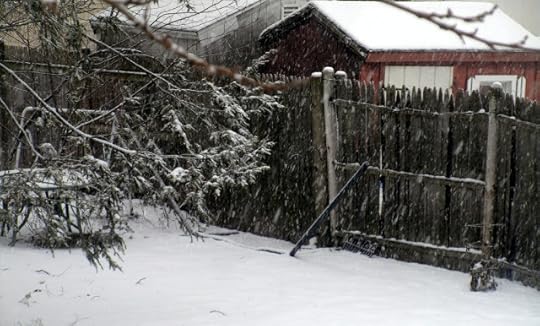Robert Knox's Blog, page 6
April 11, 2021
Spring Offerings from the Poets of Verse-Virtual: The Birds Are Watching Us and Many Other Exceptional Visions
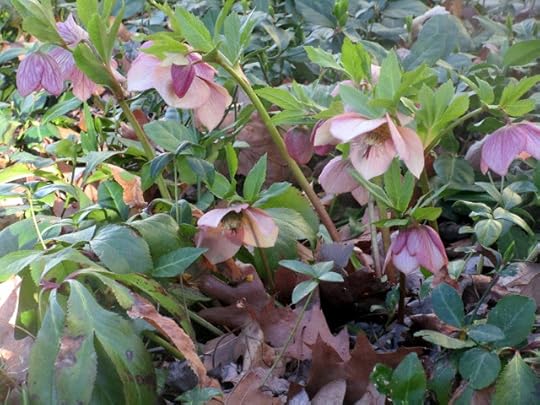
It's April, and some of are all about the great -- or even decently good -- outdoors. Flowers, greening lawns, birdsong at dawn (so they tell me) and in the last hour of the lengthening day. We even saw a deer in our city neighborhood last week. It took a good long look at us, and disappeared; undoubtedly the right decision.
Poets, it turns out, are bird-watchers. Here's a piece with a different point of view on the observing the activity at the feeder.
Marjorie Moorhead’s inventive and satisfying poem “At the Feeder” is (almost) all about the birds. The poem describes the gang at the feeder:
“Crescent-shaped Blue Back White-bellied
Long Beak, and Yellowneck Stripe-feathered
join me at the eating spot. Large Bark-peck-pecker
comes too, then flies his blackwhite feathers red-head
back to trunk..”
But, if we’re paying attention (and I had to go back to the first lines) we notice something different about the perspective. The tip-off comes right at the start: “she has her black eyes out
again.”
She? With those long black eyes?... I think the birds are on to us.
On a much different subject, Marilyn Taylor’s sonnet “Posthumous Instructions” is simply (and literally) awe-inspiring. The title clearly announces the poem’s theme To choose one stanza:
“Let me liberate the elements
that fused in me the morning I was formed
and offer them again, as evidence
that my short visit left this place unharmed.”
…But we need to read them all
We're back to birds In Mark Alan di Martino’s “To a Warbler,” but here the speaker has discovered the need to explain the unseasonably early appearance of a (once) migratory bird to his daughter. In its inventive word music, the poem sings like, perhaps, the bird:
“Math-eaten, climate-singed, the change
came quick. In the still small span of a few lifted lifelines—
dour warnings bedamned—our tempest tossed, its leafless trust
trussed to the wings of a hymnal, taxidermied, back-taxed
to the be-yonder.”
Our migratory birds are all canaries in the coal mine. Global warming is changing our world.
I enjoyed all three excellent poems by David Graham. “Sea Turtle,” to choose one, is an unsentimental look at the lifestyle of an ancient life-form that persists by persisting, its challenges and responses rendered in aptly hard-bitten imagery:
“Your young will crawl toward the light
they think is moonlit sea—
pavement glittering with headlights.
A jeep will eat the eggs
ghost crabs cannot find. You'll butt
your nose raw on aquarium walls,
snap dangled fingers like snailshells.”
Alan Walowitz’s clever and eloquent poem “The nth degree,” thoughtfully provided an explanation of its title. While the poem’s first qualifying phrase – “in the meager math I learned” –captures my own background in this subject, the poem convinces me it knows what it's doing with this insight:
“I know from a close look
at those strange Celtic languages,
unless you have a vowel
it’s sometimes hard to tell the difference
between nth and nthng—“
and leaves me with a new appreciation for our own flexible, malleable alphabet: Let’s hear it for vowels!
And while we’re being philosophical, Robert Wexelblatt’s brilliant thought experiment “Six Mental Exercises” takes readers to faraway places that prove to be broadening, maybe even mind-refreshing, staycations. For example: “Pretend you are an ancient Chinese poet in ancient China.”
And “Pretend you are an ancient Chinese poet when and where you are living now…”
These are mind stretchers. As the poem suggests, in the first of these two, “the transfiguration of the smallest cloud [becomes]
more telling than a change of emperors…”
You can read these poems in their entirety, and fine works by many other poets in Verse-Virtual's April 2021 issue. Here's the link Verse-Virtual
April 4, 2021
The Garden of Verse: These Poems Are Voting For April
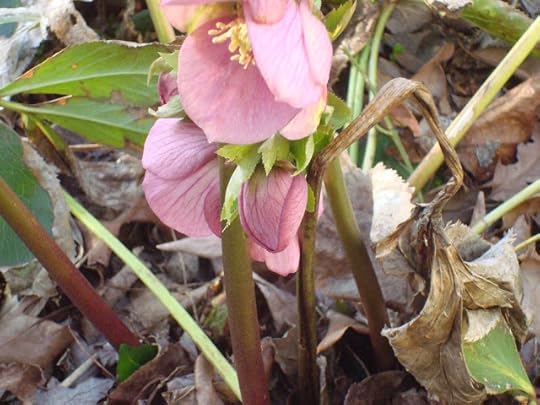
I am delighted to have three poems in the April 2021 issue of Verse-Virtual: "Nature At Least Doesn't Stop," "It's As If The Ending Has Already Passed Go," and "Put Your Hands in the Soil" were all written a year ago, just as we were all exchanging Spring Time for Covid Time.
As I have said before, when it comes to Covid-19 versus spring, glorious spring, I am voting on April. Here is the first of my three poems of the season:
Nature At Least Doesn't Stop
Or else we might think that time itself will,
the blossoms roll back into the buds.
or hover breathlessly
like a wave refusing to break,
a dawn forever on the horizon
whispering its secrets
Whatever does the moon do but change?
Yet we love it
Old men die in places we will never see
and others are driven into the streets
where their great-grandfathers sold trinkets
in the dust
We, born to happier estates,
tiptoe through gardens of remembrances,
stopping at long trains of ancestry
spreading like boxcars on lines of enabling disasters
that cruise through whistle-stop lives
Those whose lives are on the line
beg us to put away the scissors
We limber up, stretch our legs
walk our miles forward into time,
into measureless years without increments of schooling,
feeling ever the pulse of close-of-day motions –
April has no need of such reassurances,
purple spirits cross the edges of social reminders
like money
like dead letters choosing its accidental targets
in the manner of gods,
dead ends for our feet just ahead,
but none for the narcissus, the purpling grape
the color of liquid
It is we who are in need of the lamps of evening
the madness of consumption
headlines, updates, inanities
We have the stars
Stars, we beg,
come down and live among us
Here's the link to read the other two poems April Poems
This link will get you to the contents page for all the poems in the April 2021
Verse-Virtual Verse-Virtual April 2021
March 9, 2021
The Garden of the Seasons: Finding the Light in the Snows of February
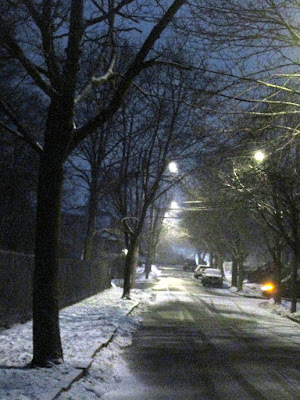 Still Falling
Still Falling You can almost see it falling, that nearly immaterial impersonation of matter Light sees it, catches itSays 'I know a secret'It's quietIts plan is to slip down, after dark, when no one can see it,one can almost never hear itone can feel it, if you remove your hatturn your face up to the sky, the deep blue nightand taste the winterthe softer airthe ambient light the subtly melting crystalson your tongue
Sky Writing The sky is yellow, lemonishpink, somewhat insinuated by the lemon ice of snow-set tonesa softer blushan inscrutable silencethat impinges on the the skeletal brancheslike jewels in your hair
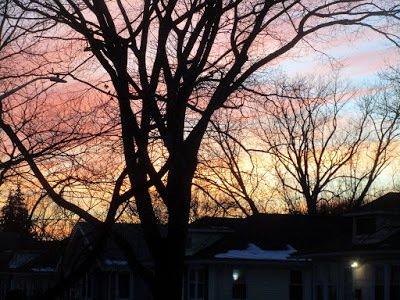
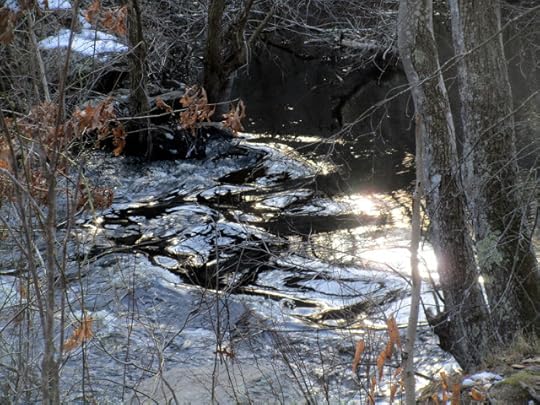
Ravine
Looking down from the path, the water slips beneath our feet, intent on its own progress,
a dance of elements, throwing off radiance, a harvest of winter sunlight, incidental, as if a mere byproduct,
an accident of water, hurrying to itself
Photographic Evidence
Old sheds in Iowa? Another winter day on the prairie?
The fence worn, swaying to the march of the seasons
Branches catch the powder of the quiet fall,
Another day of timeless snow: the element that teases the senses, erases the centuries, scrambles what we think we know
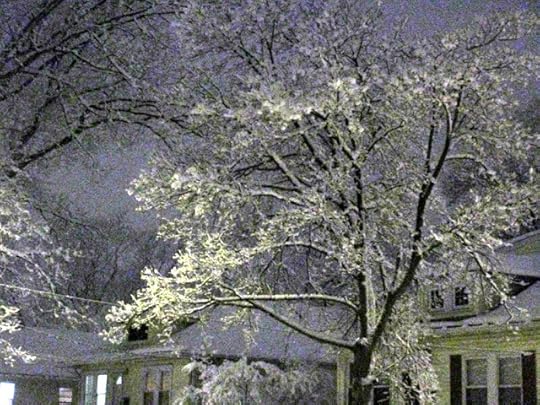
Tinting
Trees yellowing their hairWhere does the color come from? what time of day or night pastels the sky with the flat edge of some tool unavailable to human fingers
Tricks of the seasonThreads of time, woven in a soft fall one of those hundreds of Eskimo names whose speech we have yet to learn
March 6, 2021
The Garden of Verse Stirs Up the Garden of the Seasons: Three Poems on the Many Faces of March
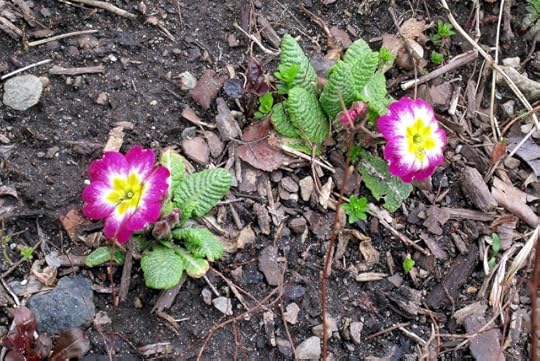
The March 2021 issue of Verse-Virtual offers poems by 71 poets, an astonishing number and range of participants. In tune with the season, editor Jim Lewis chose an optional theme of "lions and lambs."
I offered three poems written in March of last year, right before (and as) everything changed. While I didn’t quite enjamb the “lambs” in any of these, I did get “sheepish” in one of these poems. And in another I gave pride of place, in its conclusion, to "lions."
The poem "Sipping About" laments the absence of normal 'spring weather,' whatever that is. And also takes note of what was, last year, an almost snowless winter. Here's the beginning:
Skipping About
All winter freakishly quietas if someone had put a bag
over its mouth
and told it, sternly,
to calm down,
we have other things to think about...
Lions come in for a cameo at the end of this poem.
The poem "Stoppage" bears witness to that strangest of moments last year when the world seemed to stop. Here's the beginning.
Stoppage
Sometime
Thursday afternoon
They canceled the world
The trees began disappearing from
my neighbor's yard, one by
incautious one,
forced to stop growing
by powers who knew better
The cars on the street sheepishly parked in front
of neighbors’ houses by those
who have too many vehicles
for their driveways
strangely disappear
and,
already,
I miss them
To read the rest of these two poems, and the whole of the poem "March Winds"go here Robert Knox
To access the full range of poems available in the March 2021 issue, see Poems and Articles
February 7, 2021
The Garden of the Seasons: The Winter King Is in the Skies
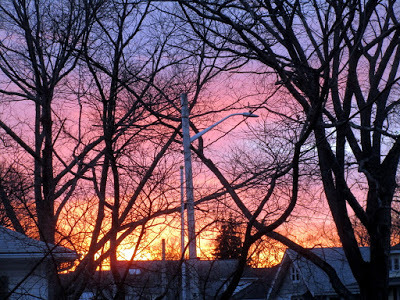
All the little roofs
All the quiet worlds beneath
the fading of the night
All the magic taking place overhead
Someone is drawing on the heavens
with the paintbox of the sun
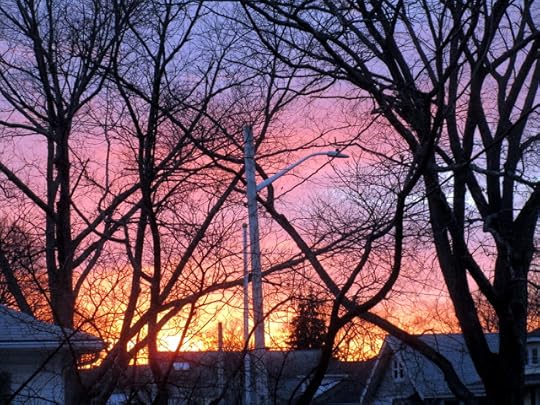
It's Further
The clock of the seasons winds down
craypas, watercolors, pastels. pencils with those liquid-like paints
We groundlings can manage a season without color
because the color is in the sky
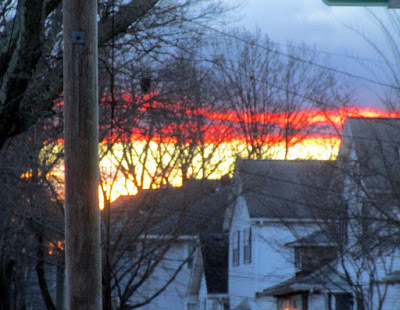
First Comes the Gold
Do not ask what color is the sky
It is the color it chooses to be
when the sun slices its rays
so thin, the colors slide into view
Those we are more accustomed to seeing
find a place as well
on the dance cards of time
twilight's winter fashions
the unsung songs
the dances of the animal masks
the brilliance of lost sunsets
escaping the prison house
of transitory beasts

Charcoal Blue
Our city
somebody's city
city of mineral kings
abstractions made stone
The birds have fled
the lines are sharp
the sky is smoke
the music gray
The water swallows the light
breathes a long story in a hidden tongue
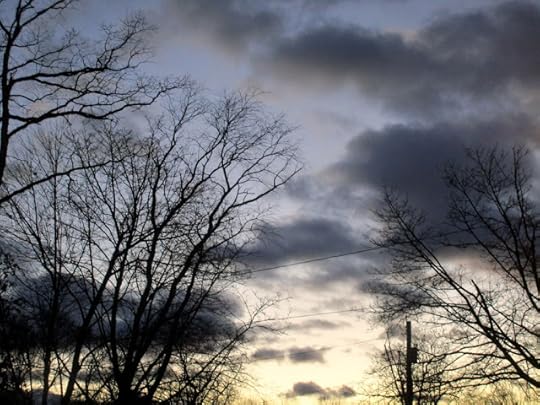
Moving Parts
That someone, that invisible hand
who ships out of sight of earthlings
has kept things moving
whose sheep are those gray ships of evening
seamlessly, silently
going somewhere
when there is no "where"
we'll ever see
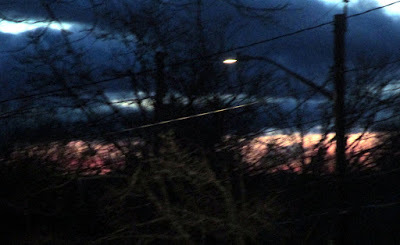
Terrified
So nothing will stay put here
The ineffable is eff-ing
How dull is our light
How certain the dark hands
that wash their fingers in our humble water
and conduct their shadows across the highways
we will never see
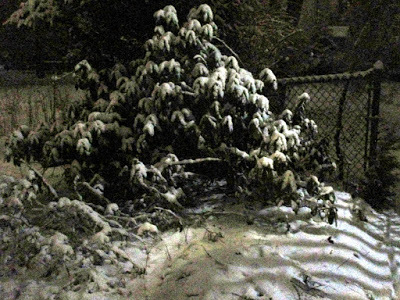
This Plant
Has never blossomed
so much white or shown such ribs
It births its multitudes
in a nursery of snow
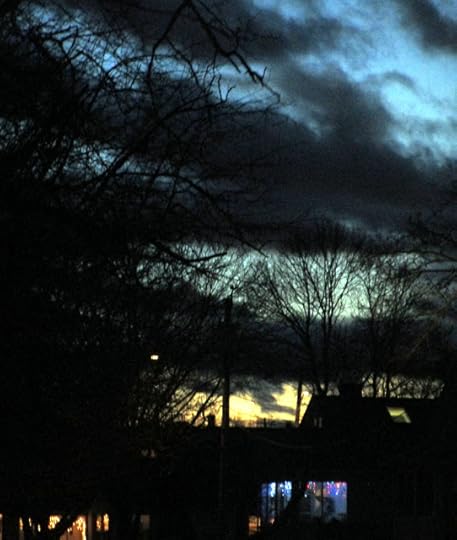
Party Lights
Whatever's going on below
a festival of light and color
dances, songs, or simply too much electronics
It's only a room, a cellar
upstairs the giants are singing
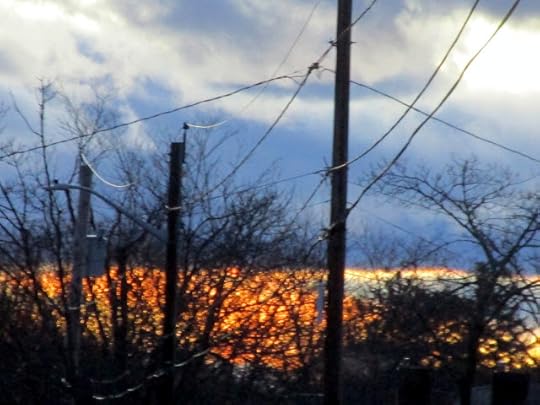
Do Not Believe
Everything you hear
Ah, those pale and flimsy cottony briefs
wave in a sea of blue
But fires burn on a distant continent
an ocean, maybe
with a self-consuming love
February 4, 2021
The Garden of Verse embraces the Garden of the Seasons: Three Poems in February's Verse-Virtual
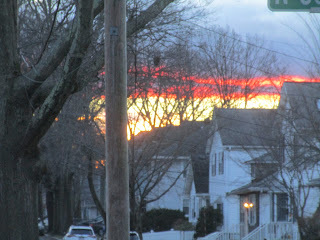
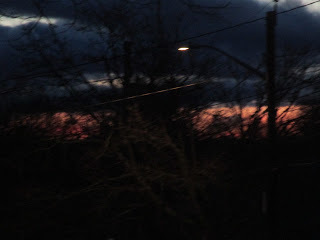
We want it lighter: A seasonal message for the mid-winter in a northern climate. I have three poems in the February issue of Verse-Virtual, the poetry journal, and community, I have contributed to regularly since the final month of 2015. All three reflect on seasonal themes belonging to the end of the year. The holidays are behind us, and lots of winter lies still ahead, with vaccination-rendezvouses likely on our minds. Nevertheless these three story-poems look back on the holiday season and the winter solstice.
The poem "Twilight Kingdom" recalls a long-ago period in my life when I explored early winter twilights on the site of a no longer worked farm, with spirits in the air.
The poem "We Went to Pick the Greens There" remembers a group of long-ago friends making an unconventional Christmas celebration. no family, no children, no parents.
And the poem "you want it lighter" describes a solstice day expedition to another city to pay a holiday visit our daughter
I'll post that poem below:
You Want It Lighter
Solstice Day:
Just wait,
whole seconds more of light coming tomorrow.
You can see it in the silver-blue water of the harbor
pale with the reminiscence of ice: change is in the air.
We inch our way around the sun,
the suave conjunction of planetary influences
apparent, momentarily,
from a bridge over the Schuylkill River,
until clouds reform
to swallow the moment.
We arrive in the city of Daughterly Love
to find the light charmed into strings of tiny stars,
skilled hands brightening short days with carrot soup,
homegrown basil, morning mimosas
and all those other gifts of practical affection.
For the others see Verse-Virtual
January 11, 2021
The Garden of Verse: January Poems in Verse-Virtual Show Poets Taking Stock at the Start of a New Year
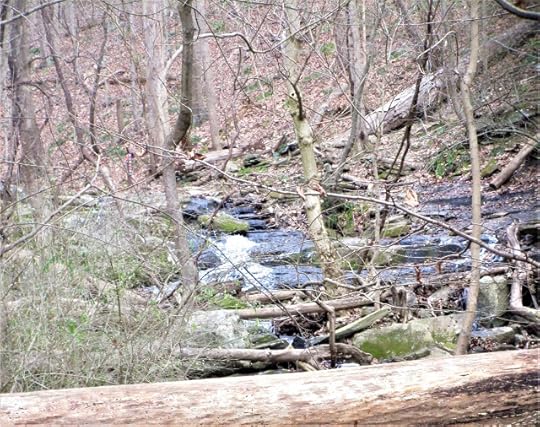
I'm still working my way through all the poems in the January 2021
issue of Verse-Virtual, but here are some of my favorites.
Jefferson Carter’s poems often get to the place where it hurts to laugh.
In “Segue” the speaker is exhausted at the prospect of remaining on the
dance floor for a segue into “Chain Gang,” which obliges dancers to raise
“an imaginary pick ax over your head
on each “Hoh!” & striking on each “Ah!”
The image is immediately followed, no commentary required, by:
“Love, for a shy girl, you don’t sweat
much, meaning I love how you don’t sweat
being judged.” And then by a sadder, wiser foreshadowing of the night
to come, “knowing
I’ll get up between nightmares six
or seven times to pee.”
Carter’s three February poems use self-satire along with social and
political commentary to show us to ourselves.
We find a similar pursuit of self-knowledge in “your bird does not speak english,”
Jim Lewis’s smartly titled poem that carries a bittersweet message revealed in
its conclusion. The poem offers various pleasures along the way, as in this
wonderfully precise depiction of the pet’s behavior:
“i hear the rising volume
of a cockatiel's complaint
at being ignored. the near
train-whistle panic that you
have simply walked out of the room
without her on your shoulder”
I found much to admire in Penny Harter’s “Night Thoughts,” which culminates in
this beautiful word-music evocation of listening to one’s own heartbeat:
“I honor the
bloodlines that have brought me here,
this faithful heart that lets me fall asleep
again, wake again, stretch to greet the
morning, breathe deeply, and rise.”
I like everything about Laurie Bryo’s “The Snow Angel,” a thought-dream about
the father “a wild-eyed charmer,” who returns from the afterlife
“to tell me that the dead aren’t worrying about the living, that
each snowflake falling is a wish spoken before it hits the earth.”
The dialogue that follows between the living dreamer and the
spectral presence is priceless:
“Tell me
you aren’t disappointed dad, show me how you know
it’s all ok. He guffaws his coffee. I would sleep like the dead.
Instead, I have dervish-toddlers, toothless men. Mostly I have you.”
We all have questions, the poem tells us. And dreams, perhaps, are the only
answers – and non-answers. Be sure to read the rest.
Tricia Knoll’s three seasonal poems deliver that cold-warm-cold feeling of
a northern winter. A stark, severe time to be existing on earth, glowing with
barely seen wonders, as envisioned in “Pagan Epiphany in the Night Woods.”
The poem evokes a sorcerer searching for truth
“in a rarified sky,
for the Dipper pouring love
to the shivering.”
And finding this miracle: “Three sets of footprints.
Red fox, bobcat, and doe
hold up to plummeting cold.
With what faith they cross
the road to the woods.”
These poems shiver with insight.
Tom Montag’s three selections from his ongoing lyrical epic, "The Woman
in an Imaginary Painting" continue to offer us little wonders as large as life:
“The permanence of art
is the same as death..”
The third poem in this group walks a little circle inside a dark
museum, then comes back to its own self-mage: “She would turn
from darkness, yet it
holds her here. This stillness
is the same as death.”
I am wondering if these selections share something with Whitman’s
famous assertion in “Song of Myself”: “And to die is different from what any
one supposed, and luckier.”
Keep reading, everybody. There’s plenty more where these came from.
The January 2021 issue includes work by 66 poets.
Go here to find your way into the poems
January 4, 2021
The Garden of Verse: Verse-Virtual Offers Poems for the First Month of a New Year, A Time of New Hopes and Sketchy Weather
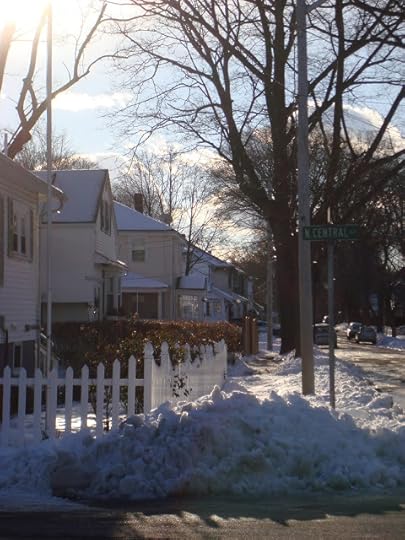
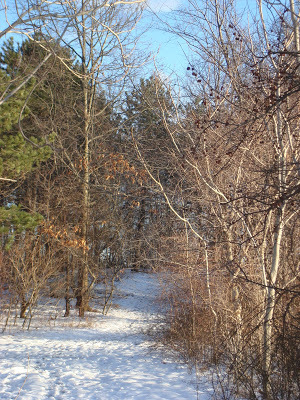
My thanks to editor Jim Lewis for managing once again to put together a marvelous new edition of Verse-Virtual. January 2021 issue includes work by 66 poets, including new poems by Tom Montag (from his "The Woman in an Imaginary Painting" series), Jefferson Carter, Tricia Knoll, Michael Minassian, David Graham, Marilyn Taylor, Sylvia Cavanaugh, Steve Klepetar, Sharon Waller Knutson, Alan Walowitz and so many others.
The issue also includes my own poem "Calendar Days," a salute to the new year that takes a bittersweet look at the climatic possibilities of the upcoming months, particularly in atmospherically unpredictable New England.Here’s my wintry forecast for the next three months:
Calendar Days
You cannot count on when the snows will hide the ground and draw the flocks January shifts its ground, confusing eager body clocks Some days of rain refuse to freeze Others tempt with softer breeze February, much the same, is also March Frost holds the ground, but seldom white Some days are mild, the roots to stir And thoughts of spring begin to whir Then freezing spells turn hopes to spite And then the month whose name is change All months now are seeming March, With chilly fingers in the windWe stalk the sunny, sometime hours Looking for foreshadowed flowers
To read the rest of the poem, my other two poems, and work by all poets in the January 2021 issue see January 2021
January 3, 2021
The Garden of Fiction: Good Reads From 2020, the Otherworldly "Piranesi" and a Recollected Journey with Borges in Scotland
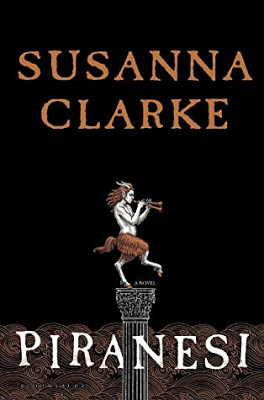
To start the new year, I'm recommending two books I enjoyed in the final days of the last one. The first, "Piranesi" by Susanna Clarke is simply the best fiction I've read since -- I can't remember. You may recognize her name if you read her earlier book, "Jonathan Strange & Mr. Norell."
I am partial to a little 'speculative fiction' along with my literary fiction, but Clarke's imaginative reach extends beyond any notion of genre. Her novel's nameless narrator -- "I believe I am between thirty and thirty-five years," he/she says -- is in the dark about everything. Piranesi's words betray him as the victim of abuse who thinks his master is the friend.
His situation exemplifies the skeptical philosophical trope that asks, “How do we know what we think we know?” If we were born alone, a stranger in a strange land, how would we know whether anything is ‘true’? or, real? The novel’s narrator is in this predicament.
And then this book treats us to the always rich hypothetical, unprovable (one way or another) but possible existence of other worlds. A speculative proposition, but hard, I would say impossible, to disprove by logic and reason alone.
Clarke's story begins with a human being alive in what to us is clearly an ‘other world,’ To the reader – but not to him – his world possesses a lot of resemblance to ours. And, oddly, he does not question this remarkable lack of knowledge about his own origins. Finally, his world include visits by another human, whom he simply calls ‘the other.’ The other's brief, though regularly scheduled visits are accepted by Piranesi as a cardinal fact, along with the tides, the weather, the seagulls, and the seemingly endless rooms of his otherwise solitary world filled with statues depicting human and animal forms.
From this beginning, the novel opens its fan of complexities, including, of course, the existence and agencies of our ‘real’ world. Very little is predictable in this place. Every revelation is a stunner, helping to build a complex web of illusion over the haunting beauty of his world's material reality.
To me, Clarke's new book is speculative fiction at its best.
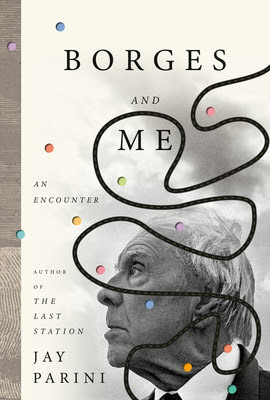
The second book, "Borges and Me" by Jay Parini, is a less reliable pleasure. Here I think you could skim (or even skip) the first 50 pages. The memoir is the story of a young guy in the Vietnam era seeking to evade the draft, while writing an academic thesis and becoming a poet -- familiar ground, especially for my generation.
But when the author gets himself to Scotland the book gains some traction, and when Argentine storyteller, poet and master of all literature Jorge Luis Borges turns up in Scotland -- we're being told this unlikely visit actually happened -- the book takes off. Borges who is of course blind is both an oracle and a pain in the ass...
The author may have kept some good notes from that time, but even if he did I suspect he is "re-inventing" the shape of actual conversations prompted by the sites of their shared journey through the Scottish Highlands. I cannot imagine a memoir of events taking place a half century ago being written without relying on the technique of literary recreation. The encounters between the blind master for whom "the world is a library" and -- to take one example, the Loch Ness monster is Grendel, the embodiment of savagery in the Anglo-Saxon horror story "Beowulf" -- and the unself-confident American draft dodger grow in depth. They become two wanderers thrown together in unknown country, bumping against the limitations of their own visions.
By the end, the reader finds himself himself rooting for everyone, even though the issue of those ominous letters from the local draft bureau back home is left unresolved.
Still I liked his story, and identified with much of it.
I can't say that I -- or anyone has ever in actuality experienced Piranesi's challenges. But anyone who dreams can imagine them.
December 15, 2020
The Garden of Verse: Magic Moments in Verse-Virtual's December 2020 Issue
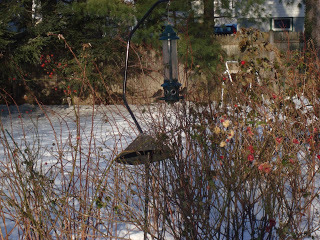 Is the fraught year 2020 actually coming to end?
Is the fraught year 2020 actually coming to end? A troubling year ends on a high note for the poets who contributed some of the year's best work to December issue of the online journal "Verse-Virtual," which every months publishes new work by some 50 contributors. Here are a few of the poems that offered word magic in the waning days of 2020.
Among the poems in the December issue that got deeply inside me and stayed there are two poems by Steve Klepetar. “Thin Air” speaks to the Election Day anxiety many of us felt (I did: trying to decide whether to flee to Costa Rica), but takes us to a fantastically dark place made beautiful by its depiction. It’s hard to call out the great lines here –
“Your sister hides in the attic.She has broken the necks on all her dolls.There will be much to discuss.”— for example; there are so many of them, and they build on one another. Thefractured dolls follow: “Your father has limped home late.His briefcase has torn, his shirt hangs in rags. Could it be dogs again, or the human gang?” It’s the ‘human gang’ that’s really scary, isn’t it? The second poem “Reading Quantum Physics and the End of the World," takes us to a similar place. Though the atmosphere is rarified, the landing is familiar: “But now I have a headache and my Facebook friends/ are weeping. Those boots again, and now a rustling in the trees.” I’m down with Tamara Madison’s strong poem on aging, "The Last Rain," for some of the same reasons. It addresses, beautifully, effectively, things I don’t even want to think about. So the poem sings them to our hearts:“Tonight when I hear the rain
slap the sidewalk as they say that it will,
I will stand in the street with my arms
outstretched and let my face go wet
and my clothes stick to my sides
because the way things are now,
this may be the last rain ever.”
Marilyn Taylor's poem “The Four Who Would Be Will” may well be the last, best words we will ever hear on the bizarro, upper-class-twit conspiracy theories over who ‘really’ wrote Shakespeare’s plays. The comic zingers keep coming, with the wit and agility that would have pleased the master.
“My Lord Francis Bacon, let’s open with you:
a scholar you were, and a scientist too;
you wrote of enlightenment, back in the day—
but nary a poem, and never a play.
It’s likely that we would be sadly mistaken
to look for a Hamlet along with our Bacon.”
A poem that serves Hamlet and Bacon on the same dish, the latter as a strong, stanza-clinching rhyme, deserves a bust in Westminster Abbey.
Michael Minassian’s poem "Dressing the Buddha” finds shadings of divinity in the street scenes of our secular existence. Even if finding Shakyamuni barefoot on the side of a road was only an “illusion,” the poem’s speaker takes him home for tea and a bowl of soup.
Both funny and profound, the poem winks at its metaphysical storyline, suggesting (without preaching) that we should care for someone in need because we never know when we might be driving an angel from our door.
The speaker gives the Buddha his favorite clothing “along with my wife’s warmest boots.” And she, arriving home, gets to the heart of the matter: “have you been meditating again?” but then embraces the same wisdom-with-humor philosophy:
“she ran after him and gave him her saffron
colored scarf, wrapping it gently twice
around his bare neck.”
That’s the bare neck we should all be seeking to save.
Some poems are simply great stories, such as Sharon Waller Knutson’s poem about reliving old loves and losses, “I get an email from a former co-worker on a Montana newspaper in the mid 1960s.” The magic is in the detail:
“It is two am and 44 below zeroand my 1956 Ford Thunderbirdwon’t start and he has locked his keysin his 1961 Chevy Impala. He kicksin the window and his car chokesand coughs but finally startsand we slide over icy streets.” If you haven’t done so already, you need to read the rest. The same is true of “Vietnam Vet,” a poem about a soldier who hasbeen reported dead. The story is told with spare gallows humor: “As the barber cuts his hair, he says:Aren’t you that soldier on the news?” The poignancy of these period particulars are the poetry. These, and the many other fine poems in the December 2020 (my god, are we really at the end of this year?), are still up there for us to make a first, or subsequent, visit.
Here's the link Verse-Virtual December

